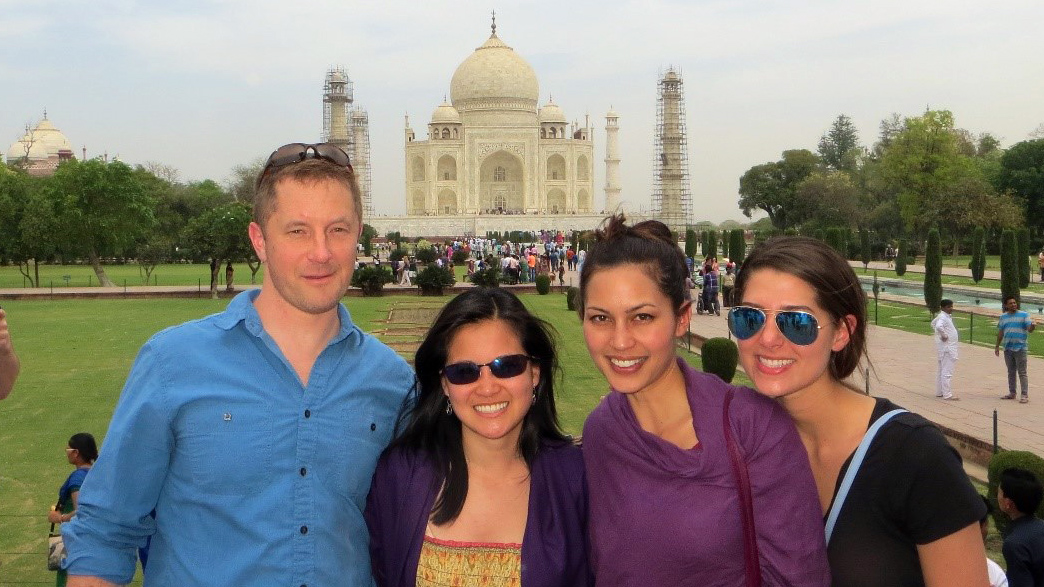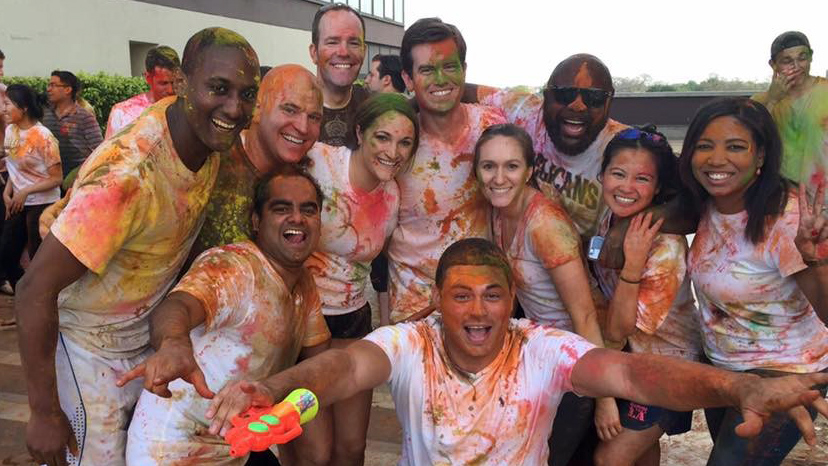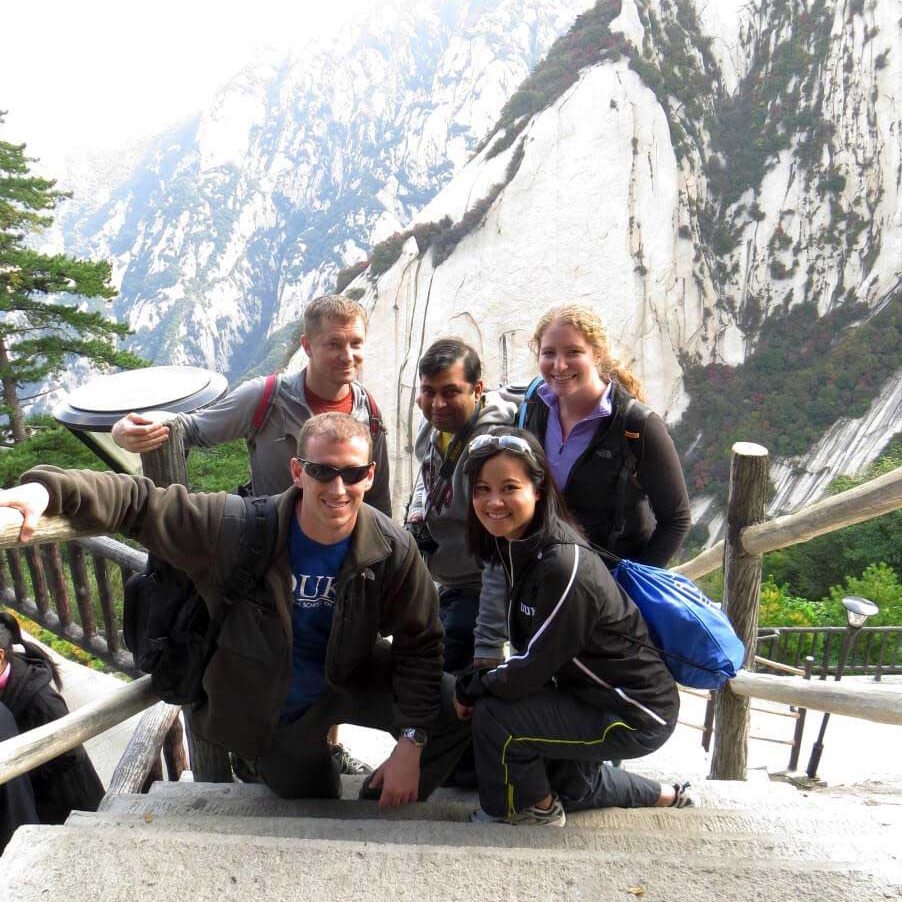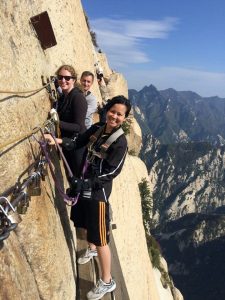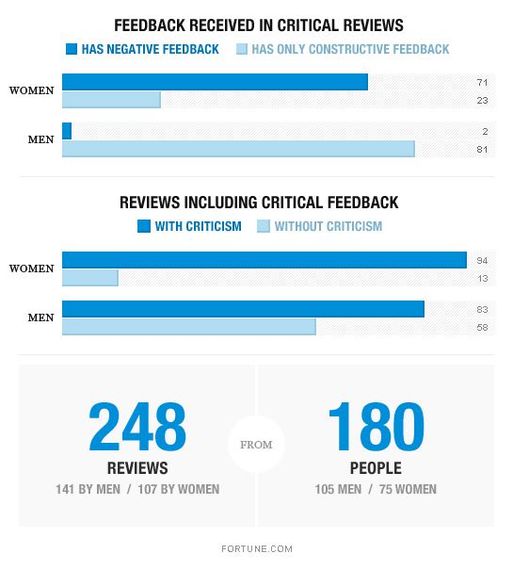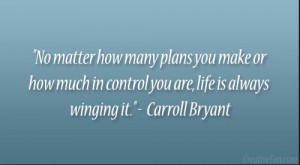A version of this post was originally published on the Duke Cross Continent MBA Student Blog from the Fuqua School of Business.
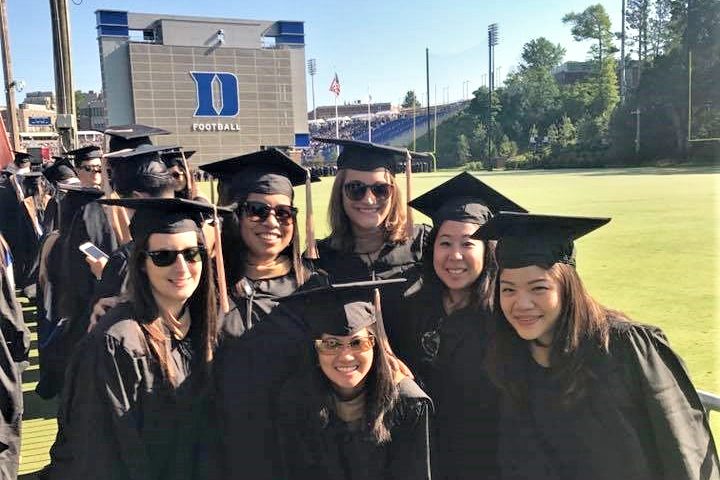
No goodbyes, just a celebration
Yes, and not just for the reasons you think. Going beyond business, it taught me some surprising life lessons.
My classmates and I graduated a few months ago as proud MBAs. We kept our full-time jobs, studied as students both in-person and by distance, traveled to international residencies across five countries, and bonded over world adventures and 10,000-plus group text messages.
When people ask if it was a good investment and what I learned, how can I describe the experience and the newfound wisdom? Reflecting back on the past two years, a Duke MBA is worth much more than a business degree as I learned some powerful life lessons.
Listen to Your Younger Self and Don’t Stop Laughing
As adults, we tend to allow our day-to-day responsibilities overtake the younger carefree versions of ourselves. My best MBA experiences involved dancing with blisters, talking into odd hours of the night, traveling to new places, and watching sunrises. We don’t nearly live these moments often enough as we get older.
As grown-ups, we often let pride stop us from asking for help because we feel like we should know better. But the reality is that no one knows what they’re doing. We’re all just trying to make good choices with the information we have. Like a business case study, there are no right answers in life. You take chances and make decisions on the incomplete data you have. And your younger self will be the inner voice that tells you to seek adventure, stop and laugh, and look fear in the face.
Find People That Make Goodbyes Easy Because It’s Not Really Goodbye
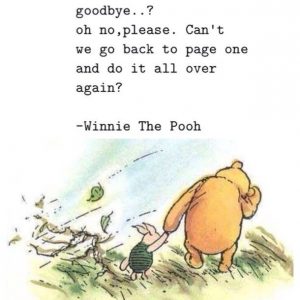 Some classmates joined the Cross Continent MBA program because they had never left the country and wanted international exposure. For others, we chose this experience because it matched our lifestyles. We’re often labeled as “nomads” or “globetrotters,” never staying in a place more than a couple of years and buying as many one-way tickets as round-trips.
Some classmates joined the Cross Continent MBA program because they had never left the country and wanted international exposure. For others, we chose this experience because it matched our lifestyles. We’re often labeled as “nomads” or “globetrotters,” never staying in a place more than a couple of years and buying as many one-way tickets as round-trips.
In a bittersweet way, this means that we’ve become adept at saying goodbye. I went to graduation to close this chapter as I had every time other experiences ended. To my surprise, no one said goodbye that weekend. Perhaps the nature of the program got us used to coming together every few weeks and then working on virtual teams. There were no tears, just celebration and laughter. The hugs were normal hugs that you give someone at the end of the night or after a vacation. It was as if we knew we’d see each other again soon. It was refreshing. It was beautiful.
You’re Not an Island and You’re Never Alone
I spent the better part of my adult life priding myself on being fiercely independent—living life on my own terms—but this experience has shown me how naïve I’ve been. Friends and family were always there even if it wasn’t obvious. Particularly for the past two years, I was never on my own. Dukies were always there. It was my classmates and their friends who helped me move apartments and climb 6,500-foot cliffs. They were there to attend my martial arts black belt ceremony. It was a Dukie I first called when my grandmother passed away.
I was never alone and the Fuqua community was there even when I didn’t realize I needed people the most. They say an MBA is good networking for your career prospects, but I find the most valuable aspect is to have people in your corner when life doesn’t work out the way you planned. Because when you don’t get the dream job, when you’re disappointed, or when that unimaginable Thursday afternoon phone call comes, you realize that you’re never alone no matter how many miles away you may be.
Growth and Character Come from Tough Places Rather than Checkmark Successes
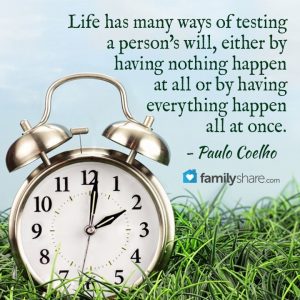 When I met my classmates, their professional and personal successes easily impressed me. However, I soon learned the raw tragedies that became a part of their stories. Sick parents, the death of loved ones, diseases, divorces, heartbreaks, the feeling of not being good enough or doing enough. In an MBA program, you get to see people holistically as the blurry lines between the professional and personal reveal accomplishments and personal battles. Though tragedies don’t define people, the scars are to be remembered and the comebacks to be admired.
When I met my classmates, their professional and personal successes easily impressed me. However, I soon learned the raw tragedies that became a part of their stories. Sick parents, the death of loved ones, diseases, divorces, heartbreaks, the feeling of not being good enough or doing enough. In an MBA program, you get to see people holistically as the blurry lines between the professional and personal reveal accomplishments and personal battles. Though tragedies don’t define people, the scars are to be remembered and the comebacks to be admired.
I find it ironic, but not coincidental that two of the hardest years of my life were also the best. I didn’t realize it then, but I spent the last two years experiencing the pain and the happiness of falling in love. With my classmates, with the experience, with life all over again with both its ups and downs.
Trust the Journey as You Chase After the Opposite of Loneliness
I recently took up surfing, and they say that you can never win against the ocean. Like life, you’ll often wipe out, but it’s worth it to catch that one perfect wave. I’ve learned to trust the experience and continue hustling. One moment, the world is crashing down on you, the next moment, you’re living and working near the beach with a sun-kissed tan. And that Duke MBA? It’s the best safety net there is.

In her final essay, Marina Keegan wrote, “We don’t have a word for the opposite of loneliness, but if we did, I could say that’s what I want in life…It’s not quite love and it’s not quite community; it’s just this feeling that there are people, an abundance of people, who are in this together. Who are on your team.”
A good MBA will teach business and management skills. A great MBA will provide you with a network of people to call on for anything. An extraordinary MBA, like the one I found at Fuqua, will empower you to become the best version of yourself and motivate you to help others on their journeys to better themselves.
Sometimes I wished a did a full-time MBA program as I could have seen the people I loved every day. Then again, the Daytime MBAs were jealous of us traveling the world with 100-plus friends while pulling in a professional salary. Everyone’s MBA experience will be different, but what I do know is that it’s an understatement when they welcome you into the Fuqua community. You’re joining a family, and you’re joining a tribe. And if you’re lucky like me, you’ll find love and the opposite of loneliness.
